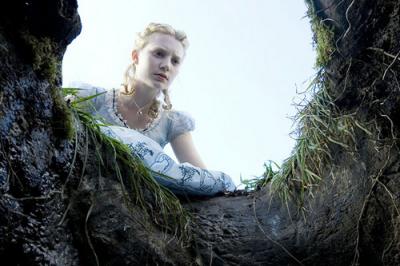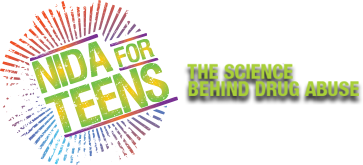
Talking rabbits who are always late, Mad Hatter tea parties, a grinning cat: enter the fantasy world of Alice in Wonderland, Lewis Carroll’s classic book of childhood imagination.
Since Alice was published in 1865, readers and critics have wondered about the author’s own state of mind when he created this “other” world in literature. So here’s the question:
Was Lewis Carroll high when he wrote his most famous books?
Alice’s adventures do sound out of the ordinary—and Tim Burton’s extreme take on the book in his new movie is getting people talking. But no evidence exists that supports the idea that Carroll wrote this story under the influence of drugs or alcohol.
In fact, Carroll invented most of the Alice stories during a boat trip with a friend and the real Alice and her sisters before he ever put her adventures down on paper. He recited the story aloud as the others on the boating party rowed.
So, where did this idea come from?
Psychiatrists who introduced LSD into our society may have had a hand in starting this rumor—or at least the supporters of the 1960’s LSD subculture did. But in fact, LSD didn’t even exist when Alice in Wonderland was written! Besides, Lewis Carroll’s writing is much too imaginative and clever to be done by someone on drugs. He was an inventive man, fascinated by mathematics, puzzles, wordplay and games, some of which appear in his books.
“‘Curiouser and curiouser!’ cried Alice. That is what the story of Alice in Wonderland invites us to be. Tim Burton explained it this way in a recent interview, “The reason we did something with it is that it’s captured the imagination of people for a very long time. That’s why all those great stories stay around because they tap into the things that people probably aren’t even aware of on a conscious level.”
Read Alice again, if you’ve already done so as a kid or see the new movie. Just remember to keep a clear mind to get the most you can out of the experience. Lewis Carroll and Tim Burton sure did.





Comments
I think the LSD and Alice in Wonderland connection lies in the similarity of the LSD trip to Alice's experience in wonderland, not in whether or not Carroll was high at the time while writing the book. There were certainly imaginative and clever writers who used LSD to enhance their lives including Brave New World author Aldous Huxley, and One Flew Over the Cuckoo's Nest writer Ken Kesey. Psychiatrists are more interested in the medical utility of LSD than some silly rumor about Lewis Carroll. Thankfully the LSD research of the 1950's is starting once again after a 40 year research drought, with an FDA approved study on LSD's ability to ease end of life anxiety in terminally ill cancer patients.
My whole family have seen the movie, and we enjoyed it.
------------------
MgStudio.com
It's hard to tell whether Alice in Wonderland was written while on drugs. Many writers have wonderful imaginations. The same was said of Edgar Allen Poe and the "Raven". But I heard an interview with singer and songwriter Paul Simon and he said he was creative on and off drugs, so he's just plain creative no matter what.
[removed commercial link, per g/l]
I find the content of the writing here reasonable, however pedantic and patronizing. By-golly, its as if Sarah Palin is your editor. Why not write to your audience with maturity and respect? SSDP Jason is right to recognize that there are also plenty of authors who are "imaginative and clever" and have used LSD and other psychotropics. Talking down to your audience will do little improve your odds of prevention.
alice in wonderland is a psychedelic movie.
however, i strongly disagree that it connotes LSD.
[commercial link]
I personly think see might of been high ALOT
if our mind is in the gutter then we might find thing there that belong in a gutter. [commercial link deleted]
going down the rabbit hole has also ben linked to psychoactive mushrooms from the roots of pine trees wich when picked looks like a tiny rabbit hole is left, wich were legal and available back then, and i believe the hookah you see in the first movie comes from the boot so opium is a possibility there
i dont think you understand how psychedelic drugs work. people arent high ALL the time, users get high occasionally, say, once every few days, and learn and grow and speculate on their exdperiences. the question of whether he was high or not while writing this book is ridiculous; nobody could write a book this long only while they're high, it's simply too much to deal with. It is quite probable, however, that he may have experimented and drawn some inspiration from drug use. There are SO many similarities between drug experiences and the experiences described in his book, that there is just no way that it was written with absolutely no drug influence. This coming from a recreational drug user. Alice shrinks when she drinks acid, grows bold when eating pot cake, the catarpillar is smoking a hookah of opium, mad hatter is drinking mushroom tea, red queen is sufering bipolar disorder as a result of continued ecstasy use, eats pot cake again from the white rabbit who is on cocaine. No coincidinces?
enjoyed it
"Besides, Lewis Carroll’s writing is much too imaginative and clever to be done by someone on drugs"
oh come on... several proficient and accomplished authors/artists have been under the influence of something while writing or creating art. Some of the greatest children's authors of all time were under the effects of LSD ex: Roald Dahl, William Goldman, E.E Milne. why would you discredit a person's ability to be imaginative or creative based on them using drugs? This article was carelessly written and not worth reading
I don't know about Lewis Carroll using LSD, but the Mad Hatter shows symptoms of mercury poisoning. Also, hat-makers used mercury to shine hats, so mercury poisoning was often common among hatters. Just putting that out there.
Nice article...thanks :)
Add new comment